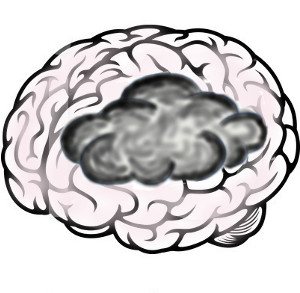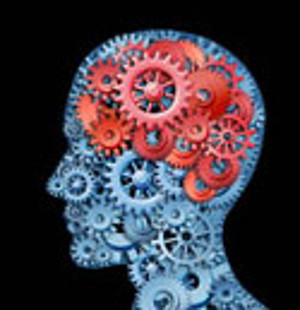
Identifying areas of cognitive disorder, like slowed information processing, can be used to stop impairment from progressing.
What Testing Looks For
Below is information on neuropsychological testing, the areas on which the tests focus, and what neuropsychological tests may find.
I forget on which forum I found this material, back when I used to go to forums.
The list and each subdivision contain things I experienced as a result of a brain injury and low vitamin B12 levels.
In almost every case, increasing my B12 levels and “exercising” my brain has helped.
“Cognitive Disorder,” what does it mean?
Cognition is the ability of your brain to think, process and store information, and solve problems. Cognitive disorders involve a difficulty in basic mental operations.
Where are Cognitive Disorders seen?
Cognitive disorders can be seen in a number of different autoimmune diseases, such as scleraderma, fibromyalgia, multiple sclerosis, chronic fatigue syndrome, lupus, to name a few. It can occur in depression and can also be medication induced.
Cognitive impairments typically progress in a slow and insidious fashion.
Cognitive Areas Affected
MEMORY – ACQUISITION AND RETRIEVAL
-
- Trouble learning new material; it takes longer to learn
- Hard to remember plots, characters in books
- Forget recent conversations, TV shows, movies, etc.
- Forget appointments
- Enter a room but forget why
- Forget items on shopping trips
- Forget to do planned tasks
- Lose and misplace things often
- Forget names, phone numbers, etc.
ABSTRACT REASONING AND PROBLEM SOLVING
-
- Can no longer successfully perform jobs requiring analytic skills
- Trouble following complex arguments or explanations
- Don’t get jokes
- Don’t get the point in conversations
- Trouble solving riddles, puzzles, etc.
- Slowness in understanding analogies, symbols, metaphors, etc.
- Too literal or concrete

SLOWED INFORMATION PROCESSING
-
- Quality of work is the same but output is much less
- Slow to respond when lots of info is presented
- Can’t easily deal with tasks having time element, such as deadlines
- Difficulty processing info coming from several sources simultaneously
VISUAL/SPATIAL ORGANIZATION
-
- Gets lost driving
- Direction Confusion: right/left/north/south
- Difficulty understanding diagrams
- Hard to visualize objects without a picture

ABILITY TO SHIFT BETWEEN TASKS
-
- Can’t rapidly shift from one task to another and back again
- Forgets what one was doing before interruption
- Trouble getting back on task
- Trouble shifting from one task to another – hard to leave first task
And, the common and very frustrating:
ATTENTION AND CONCENTRATION
-
- Easily distracted from tasks
-
- Trouble screening out distractions
- Can’t concentrate on intellectual tasks, reading
- Poor recall due to inattention while learning info – it doesn’t “encode”
ORGANIZING AND EXECUTING COMPLEX SEQUENCES
-
- Complicated tasks are daunting
- Difficulty prioritizing, time management
- Overwhelmed by tasks needing to be done – procrastinates
- Takes long time doing tasks because of jumping back and forth rather than completing one before starting another
Credits: Dr. Caruso, neuropsychologist, The Hospital for Joint Diseases, NYC and Dr. Brian Apatoff, NYC.
